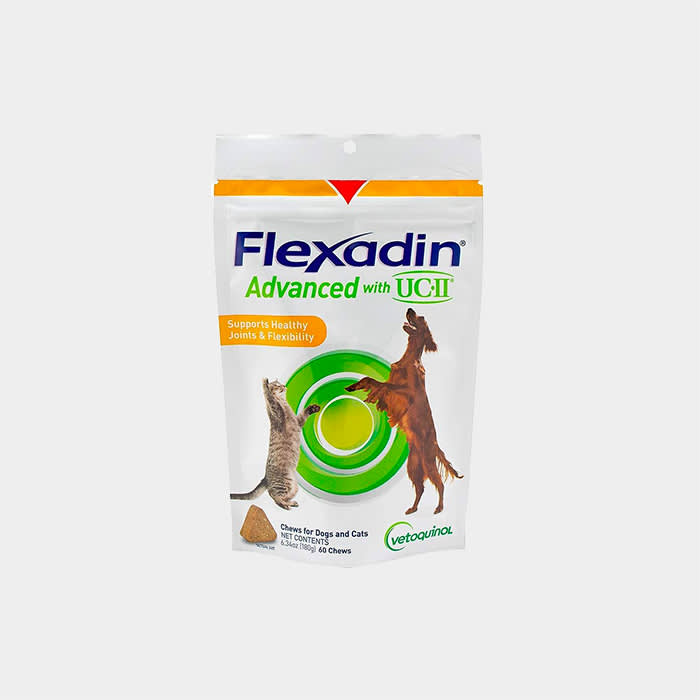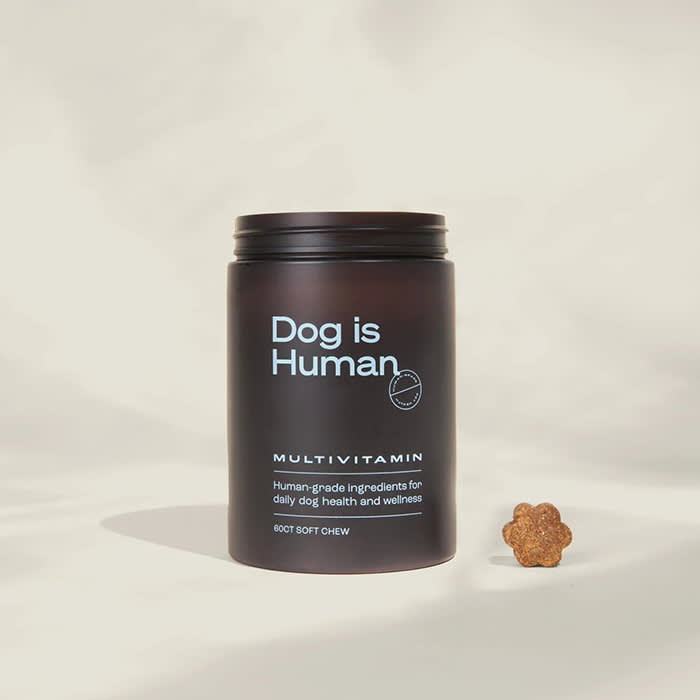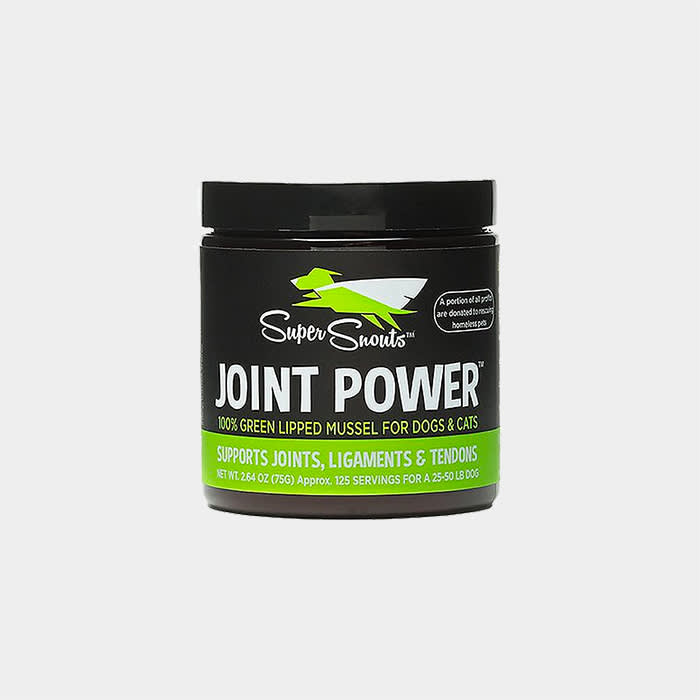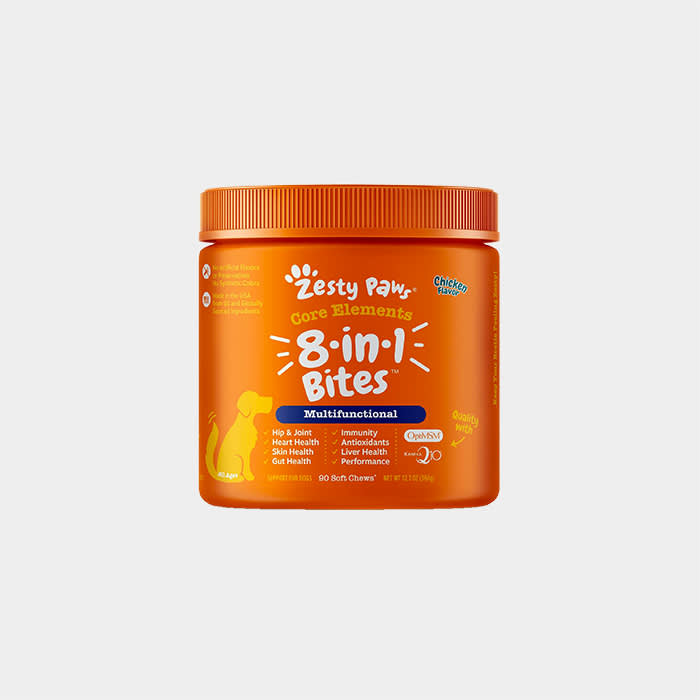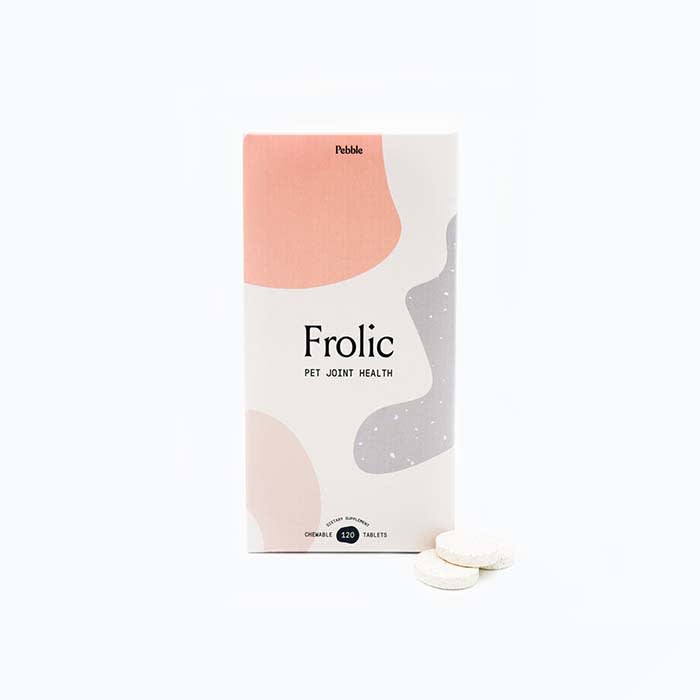Supplements Are Going to the Dogs
An integrative vet helps suss out what’s beneficial versus what’s bogus.

Share Article
From Instagram infographics to beauty brands cooked up in somebody’s L.A. backyard, the simple concept of “self care” has ballooned into an industry with an ever-expanding array of options. Supplements are one of the fastest growing categories — three quarters of Americans are taking a supplement of some sort, according to the Council for Responsible Nutritionopens in new tab. And yes, you guessed it, the people who love them are ready to hook their pets up with a little something extra, too.
“Pet supplement companies are taking good ingredients for problems shared in humans and animals and going to market with them — it’s a huge market!” says Rob Silver, DVM, MS, who works as an integrative vet and consultant to the animal nutraceutical industry. Just like the supplement industry for humans, determining what’s legit and what’s not can be a fraught, time-consuming exercise. That said, if you’re willing to invest a little time, and know that your pet has an ailment that could potentially benefit from a dog vitamin or supplement, it’s worth digging into. Don’t worry — we did most of the work for you.
Joint Supplements for Dogs
Some supplements have an experiential effect, which is nice for obvious reasons (“Hey, I took some glucosamine and now my foot/paw feels less painful!”) but it also means you have a first-hand way to gauge whether something is actually working. Hip and joint supplements for dogs are big sellers. One in five dogs — 15 million in the U.S. alone — experiences arthritis. That number tracks with prevalence in people, according to the Centers for Disease Control and Preventionopens in new tab. Osteoarthritis is a degenerative joint condition that leads to stiffness, moving slower, and, for your companion, reduced fetching of Frisbees.
Glucosamine for Dogs Vs. Green-Lipped Mussel
When it comes to choosing a joint supplement for dogs, you’ll want to pay close attention to the ingredient list, as they don’t all work well across the board. For two decades, the go-to has been glucosamine for dogs, however “studies have not been able to definitively prove that glucosamine benefits dog arthritis,” says Dr. Silver, “whereas chondroitin and green-lipped mussel have better study support.” Wait a second — green-lipped mussel? Yes, they’re used as a supplement ingredient for people, and have been found to be quite helpful for pets too. The mussels contain omega-3 fatty acids which have anti-inflammatory and joint-protecting properties. One studyopens in new tab using green-lipped mussels in dogs found that after three months dogs could put more pressure and weight on their legs, thus improving their gait.

Collagen for Dog Joint Support
Another trendy ingredient is called UC-II, which is a special type of collagen — the most abundant protein in our bodies. UC-IIopens in new tab triggers the body to release anti-inflammatory compounds and repairs the joint cartilage. A study opens in new tab showed it improved pain after a month, and lameness and physical exertion after two months, with the best effects at the end of the four-month study. And yet another interesting ingredient is sourced from eggshell membranes. One studyopens in new tab found positive effects on joint function and pain after just a week.
Immunity Support and Vitamin C for Dogs
Omega-3s are also often used for joint pain. This Swiss Army Knife ingredient can also help with coat health. (If you’re interested in making it more pleasurable to pet your pet, give your dog sunflower oil, flax seed oil, or fish oil and watch their skin and fur improveopens in new tab.) Immunity support supplements are used for skin allergies or excessive shedding. These products utilize anti-inflammatory nutrients that also work for people, like colostrum, vitamin C, and turmeric/curcumin.
Positive nutrition improves vitality. If you don’t think your dog can benefit from bonus supplements, remember that the food you’re buying may be a one-size-fits-all kibble. It checks the boxes of having the minimum requirement for nutrients, i.e. the lowest bar needed to stave off a deficiency disease. If you take the time to see what particular things your dog may need — based on their breed, behavior, age, or lifestyle — you may find that there’s a supplement that will improve their daily lives. You know, just like the way they improve yours. Below, a few of our favorite pet supplements.
Btw, our editors (and their pets) picked out these products. They’re always in stock at the time we publish, but there’s a chance they’ll sell out. If you do buy through our links, we may earn a commission. (We’ve got a lot of toys to buy over here, you know?)

Todd Runestad
Todd Runestad lives in Colorado and has cycled through three sets of two dogs in the last 25 years. He is currently guardian of a cat and four chickens (hey, chickens are pets, too!). He writes about supplements and nutritional ingredients for NewHope.comopens in new tab and NaturalProductsInsider.comopens in new tab.
